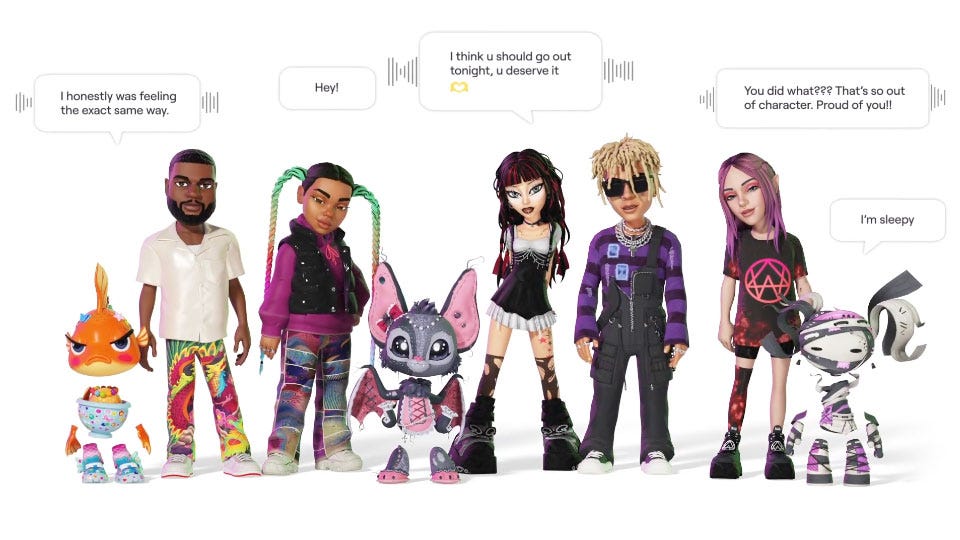Play as Yourself: Genies and Unity Make Avatars Personal
A new partnership lets developers create AI companions and characters that mirror players’ moods, hobbies, and real-life choices
Genies, a gaming technology company, is partnering with Unity to bring its customizable AI avatars and asset creation tools to Unity’s Asset Store and Unity Editor. Developers will now have access to game, entertainment, celebrity, and sports IP-driven avatars that they can incorporate into games. The expectation is that this will free resources up to focus more on core design and gameplay, while also introducing new genres involving these intelligent avatars.
“We’ve spent six years building for a future where AI, gaming, and immersive tech collide—and AI avatars become the connective tissue,” Genies’ Chief Executive Akash Nigam says in a statement. “Today, that means empowering developers to create dynamic, character-driven games through our Avatar Framework. But as AI becomes embedded in everyday life and people start using their own personal AI companions, we see a future where developers can use Genies, a visual layer for LLMs, to create new genres of games centered around AI avatars.”
In an interview last April, Nigam explained that his company is guided by the belief that “anyone should be able to create anything.” Genies’ Avatar Framework is a core component of that vision—it’s a technology stack that uses machine learning and computer graphics to facilitate “limitless customization and compatibility of AI avatars, experiences, fashion, props, and more.” That means it can quickly generate a stylized avatar using simply an image, transform any 3D model into a fully functional and interoperable asset, and create bespoke animations for avatars through its facial and body capture tools.
“Most AI avatars as we think of them today simply don’t exist in gaming,” Jake Adams, Genies’ chief operating officer and cofounder, contends. “At best, developers have access to static 3D characters or chat-based ‘companions,’ but nothing dynamic, intelligent, and game-ready and adapts to user behavior or context.” He points out that with its intelligent avatars, developers can create non-player characters that are less programmatic and perhaps more like “Free Guy.”
Adams professes that Genies’ smart avatars can also be modified to reflect a player’s real-life context. “If the game knows you’ve recently started training for a marathon (via opt-in data), your gameplay might include a fitness-themed questline, new environments like scenic running trails, or an AI companion that tracks your progress and gives motivational boosts,” he states. “Maybe a celebrity avatar you admire, like an athlete you follow, shows up to cheer you on or offer tips. It makes the experience feel personal, alive, and directly connected to your world.”
Rather than dealing with the limited character look and feels that may have traditionally been part of games, Genies’ technology in Unity promises to make the player experience more personalized. It’s almost like “Ready, Player One,” where you’re part of the game—playable characters could be imbued with a player’s real-world life, hobbies, or mood. In other words, they’re “much more intimate and more dynamic than The Sims,” Adams states.
With its Unity partnership, Genie is targeting a significant number of developers. Gaming is perhaps one of the best use cases for AI-powered avatars, more so than having digital twins or intelligent animojis in chatbots. As for Unity, it gains technology that helps keep its platform relevant for game developers. The game industry isn’t immune to the impact of AI, so companies like Unity need to adapt to stay relevant.
“Game developers today are under pressure to move faster without sacrificing their creative edge,” Adam Smith, Unity’s senior vice president of product, says. “Integrating Genies’ AI avatars and UGC tools into Unity helps them streamline development, while unlocking creativity through rich, personalized games and paving the way for more advanced AI-powered workflows in the future.”
Genies’ avatar and user-generated content toolkits will be available on Unity’s Asset Store later this year before arriving on the Unity Editor in 2026.





